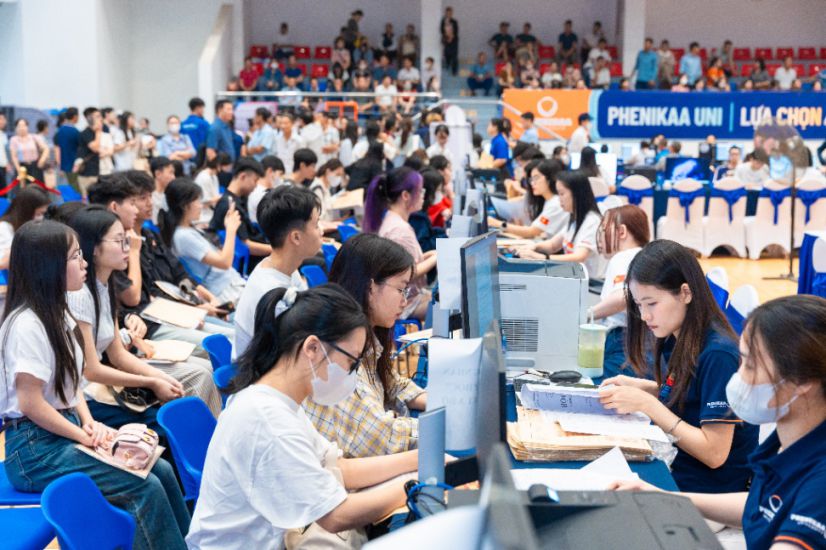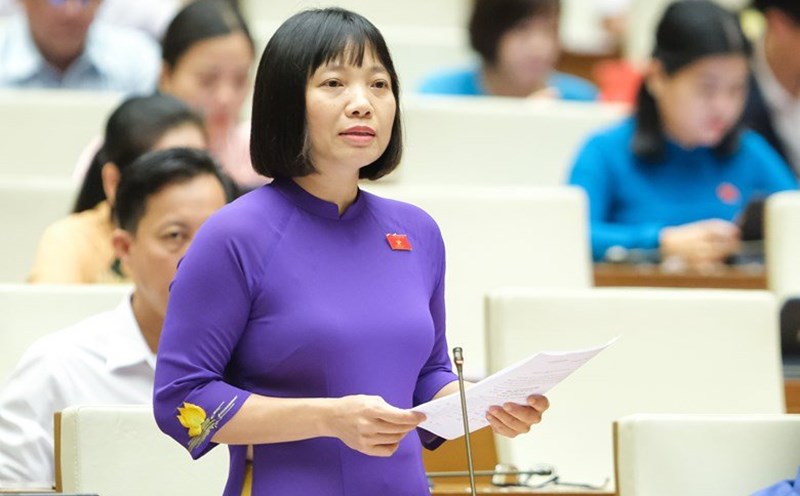Breakthrough in thinking, strong institutional changes
The Politburo has just issued Resolution 71-NQ/TW (abbreviated as Resolution 71) on breakthroughs in education and training development.
Evaluating the new points of the resolution, Dr. Hoang Van Tu, Head of the Department of Political Science, Faculty of Grassroots Theory, Ho Chi Minh City Academy of Officials, commented that Resolution 71 has affirmed that education - training is the top national policy, the cause of the Party, the State and the entire people. Accordingly, the State plays a role in creating and ensuring fairness and resources; the whole society participates and supervises.
The Resolution emphasizes the model of open, interconnected education, "learning goes hand in hand"; considers preschool and general education as the foundation; vocational education as the key to training skilled workers; while universities play a core role in forming highly qualified human resources, promoting science - technology and innovation.
Resolution 71 focuses on "parcial reform" to strategic breakthroughs in institutions - resources - governance - digitalization, with clear qualitative targets, placing education at the center of the national development strategy - Dr. Tu emphasized.
According to Dr. Tu, Resolution 71 creates breakthroughs at 4 levels: Institution of governance, resource allocation, quality - fairness of education and national competitiveness. In particular, the resolution moves from administrative management to development creation, promoting decentralization associated with inspection and supervision.
The establishment of the minimum budget expenditure ratio for education, along with the National Target Program on Educational Modernization, will create a medium-term financial foundation to upgrade infrastructure, laboratories, and make key investments for research universities. This is a shift from expanding by width to increasing by output. The policy of retaining the team is also considered a strong political signal, contributing to reducing the situation of "bleeding" labor, especially in disadvantaged areas. The spillover effect is to strengthen the culture of quality in schools, but along with that is the problem of balancing local budgets.
Another important content is the giving of full and comprehensive autonomy to universities and vocational education - regardless of the level of financial autonomy - along with the mechanism of budget allocation based on mission, quality and efficiency.
"This promises to create motivation for governance innovation, diversify programs, and link training with research and labor market demand. In particular, the group of "3 - 5 elite universities" will play a leading role in the innovation ecosystem, shortening the gap in high-quality human resources. Digital transformation and AI are also identified as a lever for system productivity, helping to standardize quality on a large scale, reduce inequality in knowledge access and increase the ability to evaluate honestly," said Dr. Hoang Van Tu.

Adjust to suit reality
A notable new point in Resolution 71 is the new model, strengthening the role of Party committees in educational institutions (site secretary and head, not organizing school councils at public facilities, except for schools with international agreements).
According to Dr. Tu, this approach can shorten the decision-making process, increase personal responsibility, but also require controlling power and maintaining academic standards to avoid reducing professional autonomy. In terms of resources, the resolution sets out the requirement to ensure the public budget is "large enough - with targets".
Ms. Nguyen Thi Viet Nga - Member of the National Assembly's Committee on Culture and Society assessed: "Resolution 71 has mentioned the need to strongly innovate the university governance mechanism. In my opinion, the issue is not " drop out" or "keep", but the important thing is to find a suitable management model, promote collective intelligence but still ensure flexibility and responsibility. If the school council is ineffective, it is necessary to boldly replace or strongly improve the way it operates. The important point is that university governance must be substantial, effective, associated with the responsibility of the leader".
According to Ms. Nga, the removal of school councils should not be understood as narrowing democracy, but as an adjustment to suit reality. At the same time, there needs to be an independent monitoring mechanism, ensuring that schools operate transparently, maintain academics and creativity.
Sharing the same view, Dr. Hoang Ngoc Vinh, former Director of the Department of Vocational Education, Ministry of Education and Training, said that in reality, many school councils currently have a formed form and lack role, causing overlapping power with the Party Committee and the Board of Directors... "The removal can reduce the apparatus and clarify responsibilities. But along with that, it is necessary to immediately design alternative supervision mechanisms to avoid falling into institutionalization and concentrating absolute power," Dr. Hoang Ngoc Vinh noted.
Expectations for innovation
Prof. Dr. Nguyen Dinh Duc, former Chairman of the Council of the University of Technology, Vietnam National University, Hanoi hopes that breakthroughs in thinking and institutions will take Vietnamese education, first of all Vietnamese higher education, to take off, to accompany and resonate with Resolution 57 on science and technology and Resolution 59 on international integration, to realize the aspiration of a rich and powerful country, Vietnam will stand shoulder to shoulder and become a developed country by 2045.
"The final step of Resolution 71 and also the desire of teachers like us, is that Vietnamese education will truly be an education that is truly "real learning - real talent", training people who are "both rosy and professional", have good professional qualifications, high qualifications, good at Foreign Languages, good at AI, but also carry a passionate love for the Fatherland with aspiration and ambition to contribute to the happiness of the people. Vietnam must have reputable higher education institutions, on par with leading universities abroad," emphasized Prof. Dr. Nguyen Dinh Duc.











